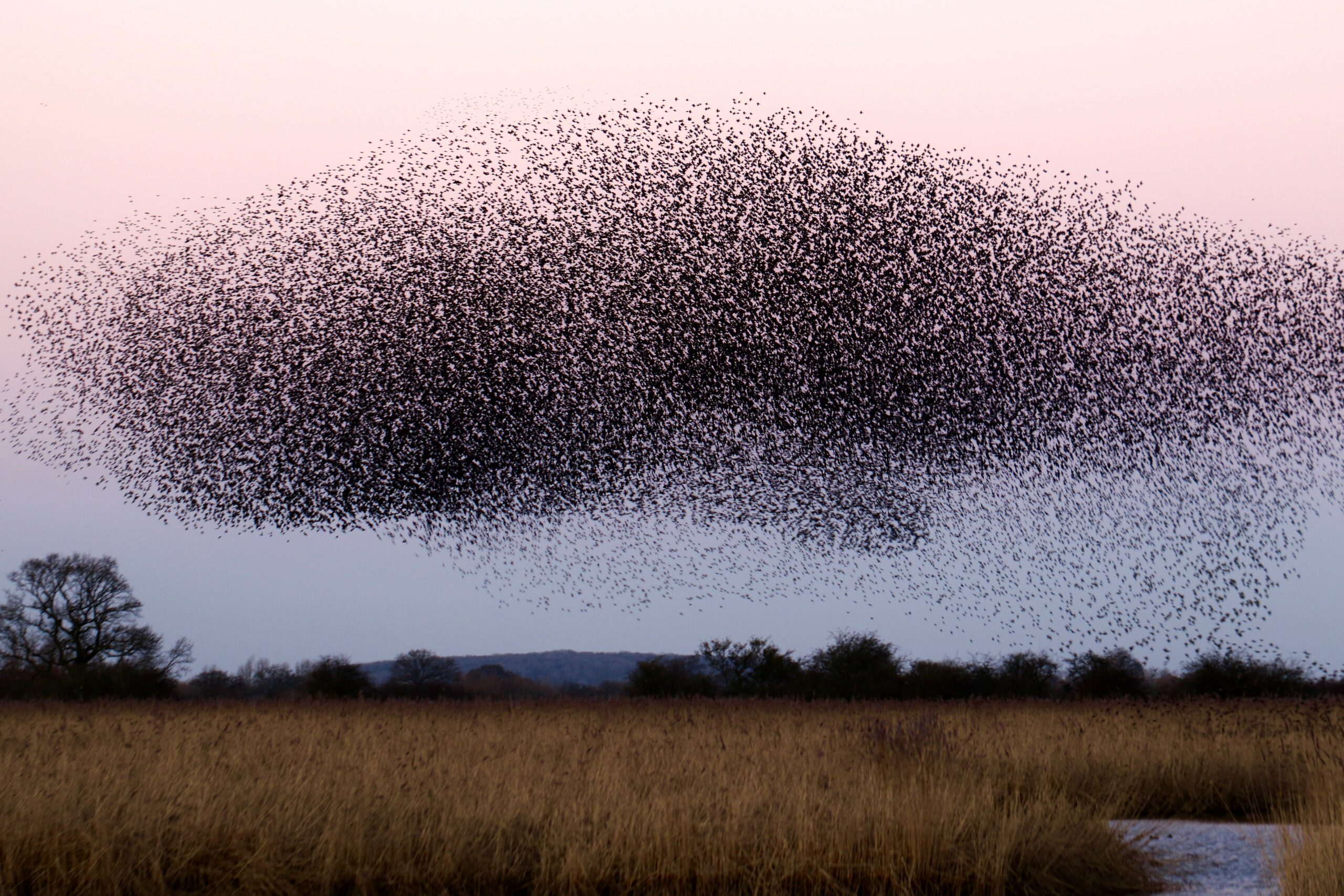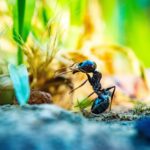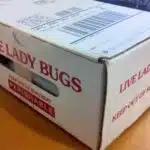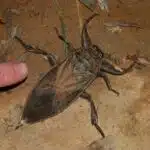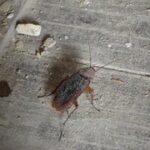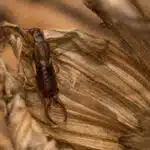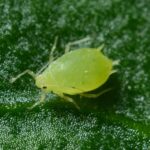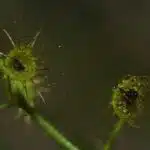When it comes to bugs in the garden, there are two types of people: those who want to get rid of them immediately and those who take a more measured approach. If you’re part of the latter group, you know that not all insects are bad. In fact, some beneficial insects can be your plants’ best friends. It’s like having your own little Avengers team protecting your garden from pests!
From fierce predators to gentle pollinators, nature gives us many allies in the fight against plant-eating pests. But how do you know which “good guys” to look for? Let’s explore 10 beneficial insects that will actually help your plants so you can create an outdoor oasis full of thriving greens and blooms.
These helpful bugs come in all shapes and sizes—from tiny ladybugs to large dragonflies—and have their own unique set of skills that make them invaluable members of any garden. So if you’re looking for a way to naturally protect your plants from pests without resorting to harsh chemical sprays, read on!
What Are Beneficial Insects?
Beneficial insects are a type of bug that help to protect plants from other pests and diseases. They play an important role in the garden, providing natural pest control and fertilization services. These helpful bugs can range from ladybugs and lacewings to parasitic wasps and mites.
These beneficial insects feed on other destructive bugs like caterpillars, aphids, mealybugs, scale, whiteflies and moths. They also help to pollinate flowers and provide nitrogen for the soil which will improve plant growth. As a result of their efforts, gardeners can avoid using chemical pesticides or fertilizers that may be hazardous to human health or detrimental to the environment.
By providing these essential services, beneficial insects can be key players in creating a healthy garden ecosystem. Without them, gardens would not have the same level of protection against pests and disease-causing organisms as they do now. It’s clear that beneficial insects are essential for keeping gardens thriving and productive.
So how exactly do these helpful bugs assist plants?
How Do Beneficial Insects Help Plants?
Beneficial insects can be a great help to your plants. They provide essential nutrients, help with pest control, and even pollinate flowers. So, how do these beneficial insects help plants?
First, beneficial insects provide essential nutrients to the soil that are necessary for healthy growth. Ladybugs, for example, eat aphids which helps prevent them from damaging the plant. Similarly, other types of predatory bugs such as lacewings, ground beetles, and hoverflies feed on pests that might otherwise cause damage or disease in your garden.
Second, beneficial insects offer natural pest control. Many helpful bugs are voracious predators and will quickly devour harmful pests like caterpillars, mites and aphids. For example, ladybugs will keep aphid populations down while lacewings will take care of mealybugs and whitefly larvae. This helps protect your plants without the use of harsh chemicals or pesticides.
Finally, some beneficial insects are important pollinators that help increase crop yields by helping to spread pollen from one flower to another. Bees are the most well-known pollinators but there are also other helpful species like butterflies and hoverflies that play an important role in keeping plants healthy and productive. By introducing beneficial insects into your garden, you can encourage these helpful pollinators to visit more frequently which can result in increased yield of fruits and vegetables.
With their many benefits for gardens and crops alike, it’s no wonder why so many people choose to incorporate beneficial insects into their gardening routine! Ladybugs are just one type of helpful insect – let’s take a look at what else they can do…
Ladybugs
A garden is like a canvas, with an ever-changing array of colors and textures. Ladybugs are a vibrant addition to this canvas, as they provide invaluable benefits to the plants in the garden.
Ladybugs, also known as lady beetles, feed on aphids, mites and other pests that can damage or even kill plants. By consuming these pests, ladybugs help keep the garden healthy and thriving. In addition to pest control, they also pollinate flowers in the garden – helping them produce more fruit and vegetables.
The presence of ladybugs is also a sign of good gardening practices. When gardens are free from pesticides, ladybugs will flock to the area and help protect the plants from disease and infestation. The colorful spotted bugs are a welcome sight for any gardener looking for natural ways to maintain their garden’s health.
Their bright colors also make them stand out among other beneficial insects, like praying mantises which bring balance to the ecosystem by preying on other insects in the garden.
Praying Mantis
The praying mantis is a marvel of nature – its incredible camouflage and predatory prowess make it truly awe-inspiring! This beneficial insect can be a welcome addition to your plants, as it consumes pests like aphids and caterpillars. Not only that, but the praying mantis is also known to provide protection from larger predators.
With their long legs and slender body, their presence in the garden is unmistakable. Praying mantises come in many different colors, so they can blend into any foliage or flower bed. They’re also quite active during the daytime, making them an interesting addition to watch as they search for food.
What’s more, these creatures are able to reproduce rapidly when conditions are favorable. That means you could soon have dozens of praying mantises patrolling your plants looking for prey! To ensure that they continue to thrive in your garden, provide them with plenty of hiding spots and some extra water if necessary.
Green lacewings are another type of beneficial insect that can help protect your plants from pests.
Green Lacewings
Moving onto the fifth beneficial insect, we have green lacewings. Lacewings are small insects with a wingspan of about half an inch. They are usually pale green or brown in color and feature large eyes and delicate wings that look like lace. As adults, they feast on nectar and pollen, but as larvae they feed on aphids, mites, thrips and other soft-bodied pests. This makes them ideal for controlling garden pests without the need for pesticides!
What’s more, if you’re looking for a natural way to get rid of aphids in your garden, green lacewings can be released into your garden or purchased as eggs or larvae from companies that sell beneficial insects. When released into the garden, these helpful little bugs will quickly search out any pesky pests lurking there and start their work of pest control!
The presence of green lacewings is an excellent sign that your garden is in good health and free from damaging insect pests. So if you’re looking for an effective way to keep your garden healthy naturally, consider introducing some of these beneficial insects to help protect your plants.
And with that said, let’s explore the sixth beneficial insect which are assassin bugs – one of nature’s most efficient predators!
Assassin Bugs
Moving on to the next beneficial insect, assassin bugs are predatory species that help control pests. These insects have an elongated body and two sets of wings. They feed on pest species like aphids, caterpillars, and even small spiders. Assassin bugs can be identified by their long beak-like mouthparts that they use to capture their prey.
Assassin bugs are usually found in areas with plenty of vegetation such as gardens or meadows. They can also often be found near trees or shrubs where they can find a wide variety of prey items. To attract assassin bugs to your garden, you should include plants that produce nectar and pollen, as well as ground cover plants which provide shelter for them.
It’s important to remember that while assassin bugs can help control pest populations, they can also bite humans if disturbed. Therefore it’s important to handle these insects with caution when gardening! Overall, assassin bugs are an effective way of controlling pests in the garden without having to resort to harmful pesticides or other chemicals.
By welcoming beneficial insects like assassin bugs into your garden, you’re making sure your plants will stay healthy and free from pests. Next up we’ll look at another helpful insect: beneficial nematodes!
Beneficial Nematodes
Serenely stalking the soil with silent steps, beneficial nematodes are nature’s go-to guardians for gardeners. These microscopic marvels provide an efficient and economic solution to a range of pest problems. With careful consideration and wise monitoring, these beneficial bugs can be a gardener’s best friends.
Beneficial nematodes are tiny worms that live in the soil, feeding on pests like grubs, fleas, and fungus gnats. They don’t harm plants or other beneficial insects; instead they help keep the garden in balance by controlling harmful pests. Nematodes enter the body of their prey through natural openings and release a bacteria that kills them within 24 hours. And even better – they reproduce quickly and continue to control pests over time!
The good news is that nematodes are widely available and easy to apply. All you need is water and a sprayer – no special equipment required! Just mix the nematode solution with water according to package instructions, then spray it onto your plants or lawn where it will be absorbed into the soil. You’ll soon see fewer pest problems as these helpful helpers take effect!
An effective way to protect your garden from destructive creatures, beneficial nematodes offer an efficient option for keeping pests at bay. By providing a balanced environment for your plants, you can create an inviting home for hoverflies – another important pollinator – to come enjoy too!
Hover Flies
Hover flies are an essential beneficial insect that can help your plants. Take the case of Katy, a home gardener based in Oregon. She used hover flies to keep aphids and other pests away from her tomato plants. After planting the hover flies around her garden, she was delighted to find that they had reduced the number of pests and kept her tomatoes healthy.
Hover flies are effective against a variety of common garden pests, like aphids, thrips, whiteflies, and caterpillars. They also act as pollinators for many flowers and vegetables. Not only do hover flies eat destructive pests like aphids and caterpillars, but they also feed on nectar and pollen from flowers. This helps cross-pollinate plants, allowing them to spread their seeds more effectively and increase yields.
Hover flies may be small creatures but they play a vital role in keeping gardens healthy. With their ability to protect plants from pests while aiding in pollination, these beneficial insects can be an effective addition to any outdoor space. Now let’s look at parasitic wasps – another beneficial insect that can help your garden thrive!
Parasitic Wasps
One of the main objections to beneficial insects is that they can seem intimidating, but parasitic wasps are actually quite harmless. Unlike other predatory insects, these tiny creatures don’t bite or sting and their presence in your garden will help protect your plants from harmful pests. Parasitic wasps serve as a natural form of pest control by laying their eggs in or on the bodies of other insects. Once the eggs hatch, the wasp larvae feed on the host insect while it’s still alive, killing it in the process.
In addition to controlling pests, parasitic wasps also help increase plant diversity by providing an important food source for birds and other wildlife. They naturally pollinate flowers and provide vital nutrients to surrounding soil. Furthermore, they often act as a form of biological control by keeping populations of certain insects in check.
The presence of parasitic wasps can be an invaluable asset for any garden, as they provide numerous benefits without posing any risk to humans or plants. So if you’re looking for a way to keep your garden healthy and protected from pests, consider inviting these beneficial bugs into your space! As bees are another effective type of beneficial insect, it’s worth exploring how they can help you create a thriving garden environment too.
Bees
Bees are one of the most well-known beneficial insects that can help your plants. Not only do they pollinate flowers, but their hives are essential for many ecosystems. In addition to their obvious benefits, bees also act as natural pest control. They feed on small flies and caterpillars which can otherwise damage plants.
What’s more, bees not only provide immediate benefits, but they also play a major role in long-term soil health. As they burrow underground, they aerate the soil and help it retain nutrients and water over time. This makes them an invaluable part of any garden or farm ecosystem.
Beekeeping is a great way to attract more bees and start seeing all the benefits they bring to your garden or farm. All it takes is a few simple steps like setting up an apiary and providing them with food sources like nectar-rich flowers. With just a bit of effort, you can enjoy all the advantages that these helpful insects have to offer! Transitioning now into syrphid flies…
Syrphid Flies
Swarming around your garden like tiny helicopters, syrphid flies buzz about with purpose. They may be small, but these beneficial insects are mighty when it comes to protecting your plants from pests. Let’s take a closer look at the syrphid fly and its role in keeping your garden healthy.
Syrphid flies, also known as hoverflies or flower flies, belong to the family Syrphidae and are considered one of the best friends of gardeners around the world. These black-and-yellow striped insects feed on aphids, spider mites, mealy bugs and other common garden pests that can cause serious damage to plants. The larvae of these flies are especially helpful as they can consume up to 400 aphids in just two weeks!
Due to their ability to quickly reproduce and their voracious appetite for destructive pests, syrphid flies are a great addition to gardens everywhere. Not only do they help keep plant-damaging bugs at bay, but their presence is also an indication that there is a good balance of insects in the area – something all gardeners strive for. With the help of syrphid flies, you can rest easy knowing that your plants are safe from harm! Moving forward, let’s take a look at another beneficial insect – ground beetles.
Ground Beetles
The crunch of a beetle scuttling along the ground is a familiar sound in many gardens. Contrasting this common occurrence, ground beetles are actually beneficial to gardens. These hard-shelled insects help protect plants from harmful pests and provide a natural pest control solution.
Ground beetles feed on insect larvae, snails and slugs, helping to keep populations of these destructive pests low. As predators, they can also be found near compost piles and other areas with decaying organic material—a testament to their effectiveness as scavengers too.
These fast-moving insects are usually black or brown in color, though some species may have bright stripes or spots. Ground beetles can be identified by their long antennae, forewings that cover their abdomens, and stout bodies that range from one-third inch to one inch long. To encourage them in your garden, provide damp areas for them to hide in during the day such as logs or mulch piles and leave leaf litter undisturbed for them to eat at night.
By inviting ground beetles into your garden you’ll be rewarded with healthy plants free of damaging pests – a win-win situation!
Spiders
Moving right along, let’s look at spiders. Spiders are one of the most beneficial insects around – they work wonders for gardeners who want to keep pests under control. While spiders may be seen as creepy-crawlies, having them in your garden is a blessing in disguise!
Spiders feed on other insects like aphids and caterpillars, preventing them from harming your plants. They also spin webs that can catch flying pests like flies and mosquitoes. This helps keep bugs away from the plants and thus protect them from damage. As an added bonus, spiders don’t require any special care or treatment since they are naturally self-sufficient predators.
You can attract spiders to your garden by providing shelter in the form of logs, rocks, or other debris that they can hide in during the day when it’s not too hot outside. Leaving some areas of your garden untended will also help create a more inviting environment for these helpful critters. With this simple step, you’ll have plenty of friendly spiders working hard to keep your plants safe!
Damsel Bugs
Did you know that damsel bugs are one of the most effective natural predators for garden pests? These beneficial insects are incredibly effective, catching some of the most common invaders such as aphids, caterpillars and slugs. They can help to keep your garden healthy and thriving.
Damsel bugs have a few unique characteristics that make them great at doing their job. They have long legs with spines on them that help them to grab onto prey, as well as a long proboscis which they use to suck up their victims. Plus, they’re small enough to fit in tight spaces like between plant leaves or stems.
Most importantly, damsel bugs are very easy to attract to your garden. All you need is a few shrubs and flowers with plenty of nectar and pollen available, as well as some shallow water sources such as bird baths or shallow ponds. This will create the perfect habitat for these beneficial insects, allowing them to thrive in your garden and keep it pest-free all year round!
How To Attract Beneficial Insects To Your Garden
Attracting beneficial insects to your garden is like a symphony of nature. It can be a stunning show of cooperation between animals, plants and soil in the pursuit of growth and abundance. To get the harmony just right, you need to understand how these bugs play their part in helping your garden flourish.
First, it’s important to provide shelter and food sources for these beneficial insects. This can be done by planting diverse flowers, herbs and vegetables throughout your garden. Not only will this create a habitat for the bugs, but also helps attract pollinators that can help improve crop yields. Additionally, avoiding chemical pesticides will ensure that any beneficial bugs are not killed off.
In addition to providing food and shelter, you should also keep some areas of your garden more wild than others. If possible, leave patches of grass uncut or undisturbed areas with natural vegetation where beneficial insects can find refuge from predators or extreme weather conditions. The more diverse habitats in your garden, the more beneficial insects it will attract!
By following these guidelines you can create an inviting environment that encourages beneficial insects to thrive in your garden and help it reach its full potential!
Frequently Asked Questions
What Is The Difference Between Beneficial And Non-Beneficial Insects?
Have you ever wondered what the difference between beneficial and non-beneficial insects is? Beneficial insects are those that help your plants to thrive, while non-beneficial ones can do harm. Knowing how to identify which type of insect you have in your garden is essential for successful gardening.
Beneficial insects are nature’s way of keeping pests at bay, as they feed on other insects and protect the plants from damage. Ladybugs, lacewings, hoverflies, and parasitic wasps are all examples of beneficial insects. Not only do they make sure that other damaging pests don’t take over your garden, but they also provide a natural form of fertilization by feeding on pollen.
On the other hand, non-beneficial insects can cause serious damage if left unchecked. Aphids and caterpillars can eat away at leaves, while slugs can munch through stems and roots. These types of pests will usually need to be removed or treated with an appropriate pesticide in order to keep them from wreaking havoc on your garden.
By understanding the difference between beneficial and non-beneficial insects, you can ensure that your garden remains healthy and thriving for years to come. Taking steps such as encouraging beneficial insect populations and safely removing any non-beneficial ones is essential for successful gardening.
How Long Do Beneficial Insects Live?
What is the ultimate lifespan of beneficial insects? It’s a question that has plagued gardeners for years. After all, no one wants to invest in a helpful critter only to have it die on them!
Satire aside, beneficial insects are an essential part of any gardener’s arsenal. But how long can you expect them to last? Well, it depends on the insect. Some species may last for just a few days, while others can live for months or even years!
Ladybugs and lacewings, for example, are both beneficial insects that can live up to two years under ideal conditions. Praying mantises are also quite hardy and will typically survive winter as well as occasional periods of drought. On the other hand, hoverflies only live for around two weeks but can lay hundreds of eggs during their short lives.
It’s clear that understanding the lifespans of beneficial insects is key to getting the most out of your investment in them. Knowing how long they’ll last will help you plan your garden accordingly and ensure that your plants get the protection they need!
What Is The Best Way To Get Rid Of Non-Beneficial Insects?
When it comes to gardening, beneficial insects can be a real blessing. But what about those pesky non-beneficial ones? How do you get rid of them without harming your plants? The answer is simpler than you think!
Getting rid of non-beneficial insects doesn’t have to be difficult or complicated. There are several ways to go about it that are easy and cost-effective. One option is to use natural predators such as ladybugs, lacewings, and spiders. These bugs feed on the larvae of the non-beneficial insects, so they can help keep their population in check. You could also encourage the presence of birds in your garden by putting up birdhouses and providing food sources like bird seed and nectar. Birds will feast on many types of non-beneficial bugs, helping to naturally control their numbers.
Finally, you can use insecticides and other chemical controls if all else fails. However, it’s important to be mindful when using these products as they may also harm beneficial bugs if not used correctly. It’s best to consult with an expert beforehand so you know which products are safe for your plants and won’t cause any damage or harm beneficial insects in the process.
With a little bit of effort, you can easily get rid of non-beneficial insects while keeping your plants healthy and safe from harm!
Do Beneficial Insects Bite?
It’s a common question asked by gardeners: do beneficial insects bite? While certain predatory species have the ability to bite, they typically don’t feed on humans. A better way to understand this question is to look into the behavior of these beneficial species and see how they interact with other organisms.
Most of the beneficial insects that help your plants are pollinators or predators. Pollinators like bees and butterflies feed on nectar and pollen and travel between flowers to pollinate them, which helps your plants reproduce. Predatory insects hunt down other pests, like aphids and caterpillars, in order to keep them from damaging your plants.
These insects generally don’t pose a threat to humans since their natural food sources come from other animals. They also tend not to bite because they generally don’t need people as sources of food. Instead, you can use these insects as a form of natural pest control for your garden without worrying about getting bitten!
Do Beneficial Insects Reproduce Quickly?
A staggering 70% of insects on the planet are beneficial to plants, but do they reproduce quickly? As a gardener, it’s important to understand how these helpful species interact with your environment. The good news is that beneficial insects can multiply quickly – something that could be key to keeping your garden healthy.
When it comes to reproduction, beneficial insects have an advantage over the harmful pests you might find in the garden. Most species reproduce rapidly and efficiently, ensuring their population stays active and healthy. In addition, they often won’t create a nuisance for you or your plants – unlike other kinds of bugs which can cause damage or transmit disease.
This is why it’s so important to introduce beneficial insects into your garden if you want to protect your plants from other invasive species. Doing so will help maintain a balanced ecosystem that encourages healthy growth and discourages infestation. Not only that, but having plenty of helpful critters around will also provide nutrition for birds and other wildlife, as well as helping with pollination too!
By understanding what kind of insects are best suited for your garden and introducing them in the right way, you’ll be able to reap all the rewards of having them around. From pest control to natural fertilizers, there’s no doubt that beneficial insects are an invaluable part of any successful gardener’s arsenal!
Conclusion
The truth behind beneficial insects is that they are essential to keeping your plants healthy. By introducing beneficial insects into your garden, you can create a natural balance of pests and predators that will keep your plants flourishing. These beneficial bugs have the potential to reduce or even eliminate the need for chemical pesticides, making them an ideal choice for organic gardening.
But it’s important to remember that beneficial insects don’t last forever. The lifespan of these bugs varies depending on the species but will typically be no longer than a few weeks. Therefore, it’s important to continually introduce new beneficial insects into your garden in order to maintain a healthy population of these helpful critters.
In conclusion, while there are several different types of beneficial insects available, it’s best to do some research before introducing any new species into your garden. By understanding the difference between beneficial and non-beneficial insects, you can ensure that you reap all the benefits that come with having these helpful bugs around. With some basic knowledge and regular maintenance, you can ensure that your plants remain healthy and pest-free for years to come!

